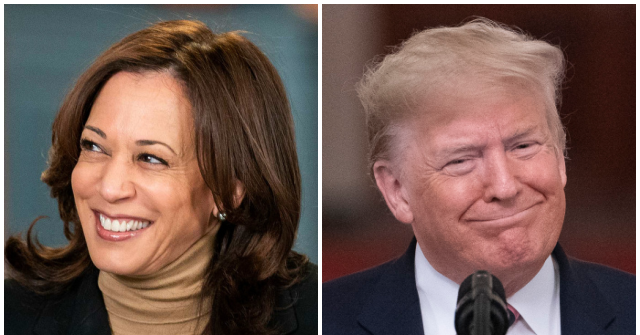Tariffs Have the Support of the Majority of Americans
Donald Trump’s tariffs are popular with a commanding majority of American voters—and extremely unpopular among Wall Street economists.
Fifty-seven percent of likely voters say they support proposals to “raise taxes on imported goods,” according to an ABC News/Ipsos poll released Sunday. Forty-two percent say the oppose tariffs.
That’s even more interesting because Kamala Harris has been loudly proclaiming—without evidence—for several weeks that tariffs amount to a national sales tax that will raise prices for American consumers. Americans are just not buying the claim that the costs of tariffs are higher than the benefits.
Wall Street, on the other hand, loathes tariffs, having long ago wedded itself to globalization, largely due to the fact that this goes hand-in-hand with the financialization of the economy. According to a Wall Street Journal poll of leading Wall Street economists, 59 percent said that Trump’s tariffs would lower manufacturing employment, and just 16 percent said they would raise employment.
Economists Are Wrong About Tariffs and Politics
One of the things that makes this divide interesting is that it undermines a key narrative about trade and tariffs. According to the story economists like to tell, the tariff is a policy tool that has dispersed costs (higher consumer prices) and concentrated benefits (protection of domestic manufacturers). Free trade is supposed to be widely beneficial but politically difficult to achieve because the benefits are so diffuse that it is difficult to politically overcome organized special interests.
This has long had the ring of fiction. If it were true, we would expect a global regime of protectionism. Protectionist policies would dominate everywhere, especially in the United States. Public choice theory would more or less make the lowering of tariffs that we have seen in the post-World War II era impossible. How would the World Trade Organization have come about if the dominant narrative of trade were true?
The division between Wall Street and Main Street on tariffs suggests that something like the opposite is the truth. The so-called free trade regime delivered concentrated benefits to a few and dispersed costs to many. Public choice theory is correct that special interests tend to dominate politics. The economists were just wrong about which side of the trade question the special interest beneficiaries were on and who was bearing the costs.
It’s worth noting that tariffs are even more popular than corporate tax cuts, a favorite of economic policy pre-Trump Republicans. Just 42 percent of likely voters support reducing corporate taxes—and 56 percent oppose. That is, the corporate tax question is basically the photographic negative of the tariff question.
Trump’s political entrepreneurship has recently come into dramatic focus with his new proposal to basically combine the public’s support for tariffs with the traditional Republican and business class support for corporate tax cuts by promising a lower tax rate for businesses whose products are made in America. It combines the pro-growth wisdom of a corporate tax cut with the economic nationalism that informs the public’s support for tariffs.
Wall Street Predicts a Politicized Fed
The Main Street-Wall Street divide is not confined to the question of tariffs. The public overwhelmingly thinks Trump will be a better steward of the economy than Kamala Harris. The ABC poll has Trump ahead by eight points on the economy and seven points on inflation. A Wall Street Journal poll of battleground states has Trump ahead by 10 points—50 percent to 40 percent—on the economy.
Wall Street, however, is backing Harris on the economy. Forty-five percent of the economists said the economy would expand faster under Harris, compared with 37 percent for Trump. Weirdly, at the same time, 61 percent said interest rates would be higher under Trump. That suggests that Wall Street’s economists think that the Fed will be more restrictive if Trump is president even though they think output will expand at a slower pace.
It seems like no one on Wall Street is buying Fed Chair Jerome Powell’s claim that the Fed doesn’t do politics.
Read the full article here
